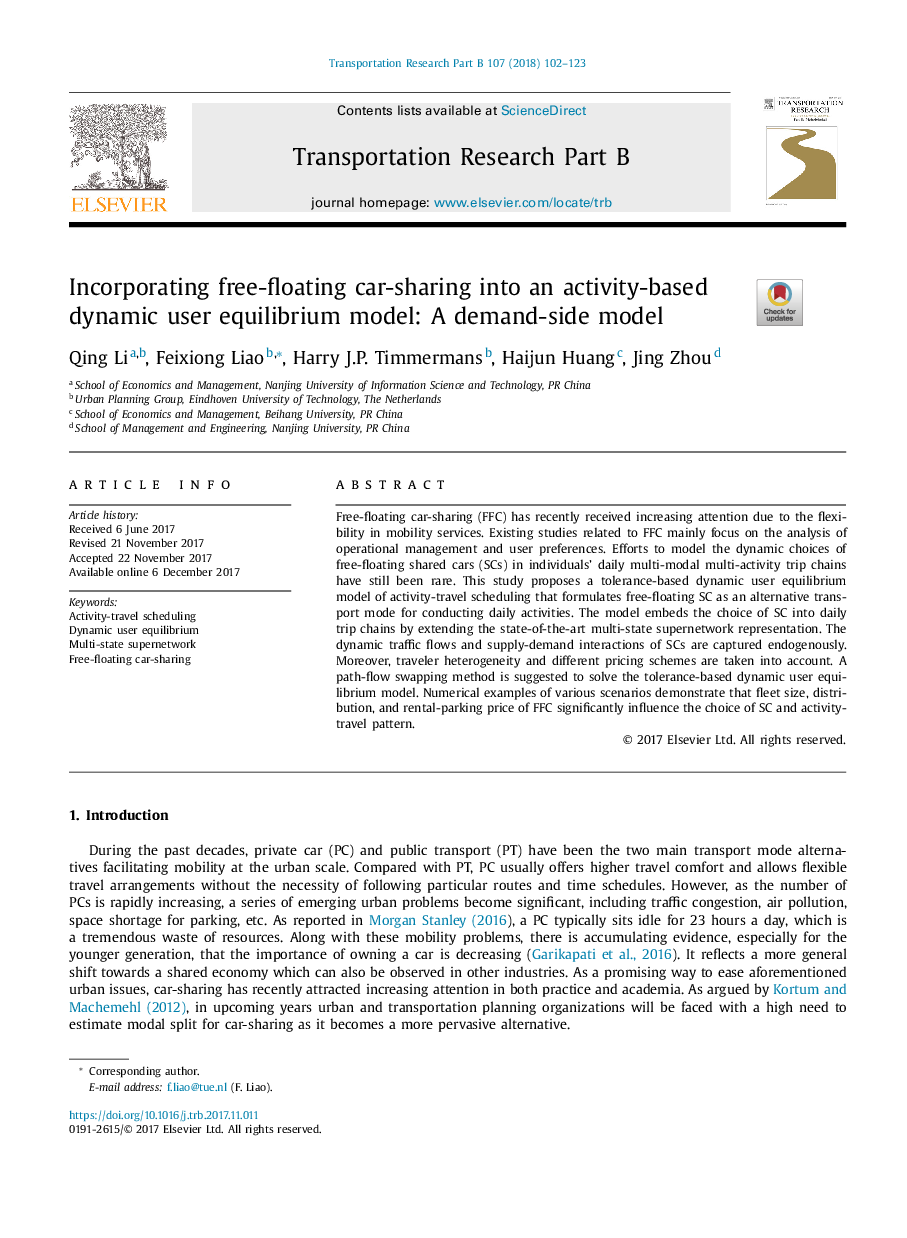| Article ID | Journal | Published Year | Pages | File Type |
|---|---|---|---|---|
| 7539271 | Transportation Research Part B: Methodological | 2018 | 22 Pages |
Abstract
Free-floating car-sharing (FFC) has recently received increasing attention due to the flexibility in mobility services. Existing studies related to FFC mainly focus on the analysis of operational management and user preferences. Efforts to model the dynamic choices of free-floating shared cars (SCs) in individuals' daily multi-modal multi-activity trip chains have still been rare. This study proposes a tolerance-based dynamic user equilibrium model of activity-travel scheduling that formulates free-floating SC as an alternative transport mode for conducting daily activities. The model embeds the choice of SC into daily trip chains by extending the state-of-the-art multi-state supernetwork representation. The dynamic traffic flows and supply-demand interactions of SCs are captured endogenously. Moreover, traveler heterogeneity and different pricing schemes are taken into account. A path-flow swapping method is suggested to solve the tolerance-based dynamic user equilibrium model. Numerical examples of various scenarios demonstrate that fleet size, distribution, and rental-parking price of FFC significantly influence the choice of SC and activity-travel pattern.
Related Topics
Social Sciences and Humanities
Decision Sciences
Management Science and Operations Research
Authors
Li Qing, Feixiong Liao, Harry J.P. Timmermans, Huang Haijun, Zhou Jing,
